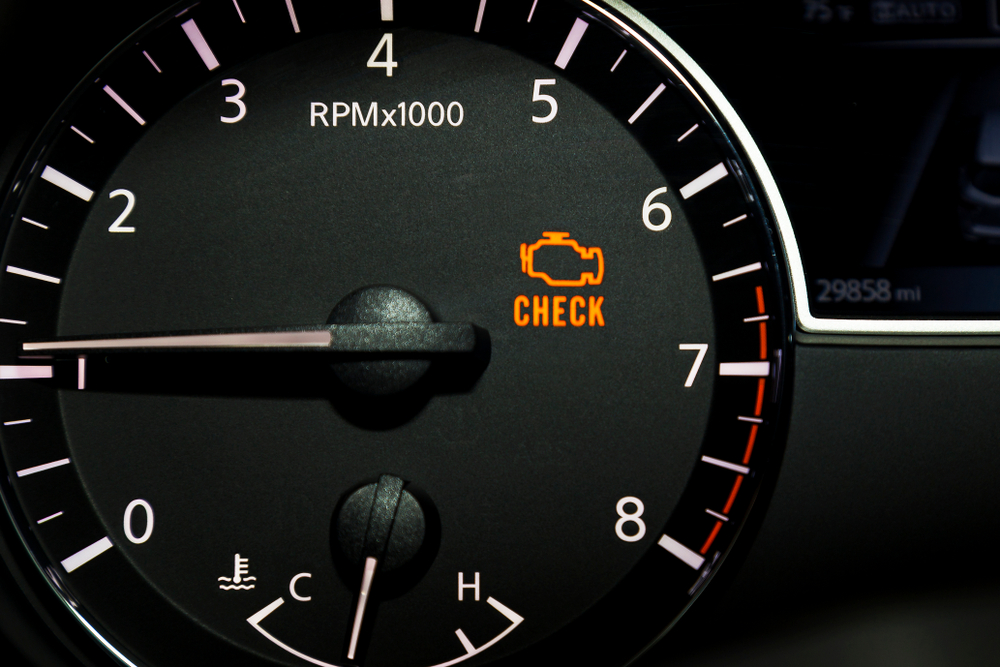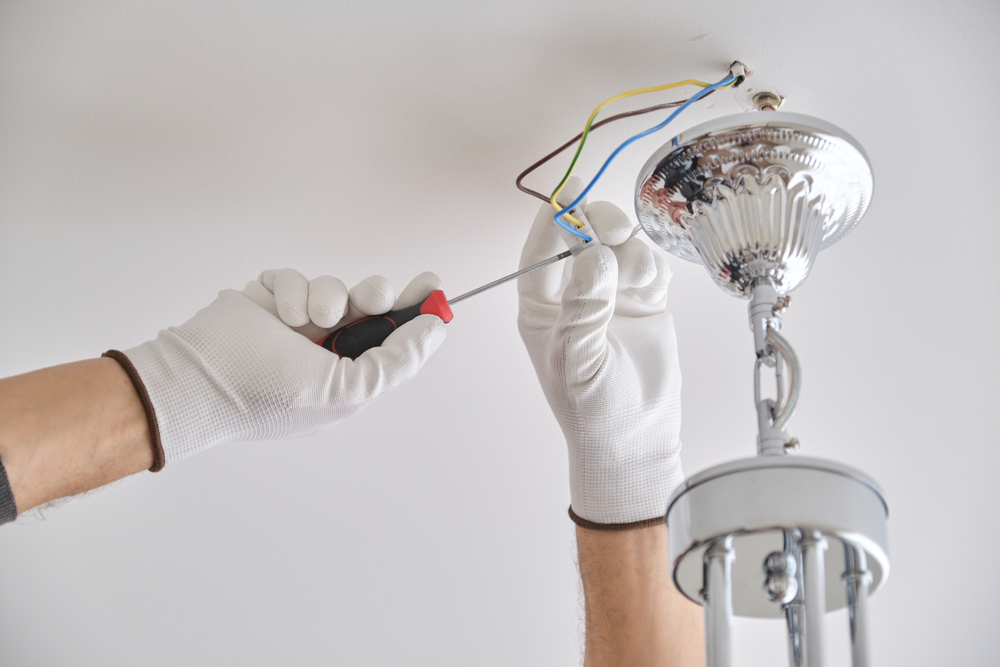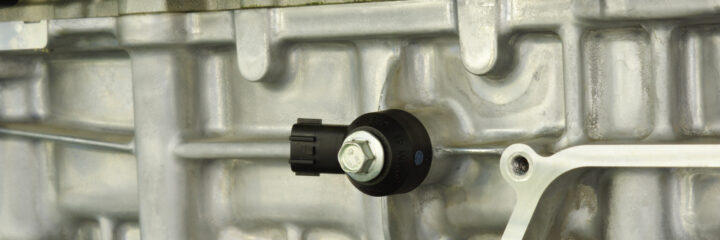Your knock sensor is a genius little device smuggled deep inside your engine. It’s a little-known car part, but it actually serves a massively important function. In short, you don’t want a bad knock sensor—and if you have a bad knock sensor, you want to do something about it.
In this guide, we’ve unpacked what a knock sensor does, how to know if you have a bad one, and what you can do about a bad knock sensor.
The Purpose of a Knock Sensor
Before we begin, let’s take a speedy detour, just so you know what a knock sensor is and what it does.
A knock sensor is like having an ear in your car. It listens attentively to your engine, paying attention to its pulsations and detonations. And if something seems amiss, your knock sensor will mitigate the problem, helping your engine to adapt and alter ignition timing in order to avoid potential problems.
If your engine is detonating very badly, you’ll be able to hear knocking and pinging yourself. But your knock sensor can detect those noises way before you do. If things get really bad, your knock sensor might trigger a check-engine light, or even shut down part of your motor. Located on the outside of your engine block (or sometimes underneath the intake manifold), it’s an important piece of equipment.
So, as you’ve probably now realized, a good knock sensor is essential—and a bad knock sensor is potentially very harmful.
How You Can Tell if You Have a Bad Knock Sensor
Here are some common ways you can tell if you have a bad knock sensor…
#1: Your Engine Doesn’t Feel Right
Okay, we know—this one’s pretty vague, and your engine not feeling “right” could be any number of things. But most things, you can diagnose a little more readily than a bad knock sensor.
So if things feel a little off, especially when you’re driving fast or carrying a heavy load, there’s a chance there are some engine faults happening, and your knock sensor isn’t picking them up. If things feel strange and you can’t work out why, your knock sensor might just be the root of the problem.
#2: Lost Mileage
If you’ve suddenly lost a lot of mileage and you can’t figure out any other reason for it, maybe your knock sensor is to blame. If your knock sensor is faulty, your car’s timings will be all wrong, and your car will become less fuel-efficient.
#3: Reduced Acceleration
Similar to the above—if you can’t get the acceleration that you once got, and you can’t seem to find any other reason for it, consider getting your knock sensor checked.
#4: Knocking and Banging
This is the most obvious sign of all.
If your knock sensor hasn’t detected banging that you can hear with your very own ears, your knock sensor is probably bad, and it’s not functioning properly. Listen out for knocking, banging and thumping that sound like they’re coming from under the hood of your car.
Your car can cause lots of knocks and bangs (and even ticking noises), but if it’s knocking or banging when you’re accelerating, it’s likely indicative of a bad knock sensor.
#5: An Illuminated Check-Engine Light

If the check-engine light on your car is illuminated, you might need to… well… check your engine. If you’re confident enough to check your engine yourself, give it a go. Otherwise, contact a mechanic straight away.
Even if your illuminated check-engine light isn’t caused by a bad knock sensor, it’s being caused by something that needs to be fixed. Always address a check-engine light as soon as you can. Oh, but don’t get it confused with your dashboard battery light—that’s a different thing.
#6: Bad Engine Performance
If your engine parts are often breaking down and becoming faulty, it’s because they’re being overworked or misused. So if you have lots of problems that you can’t diagnose, you might find there’s actually one root cause: a bad knock sensor.
Similarly, if you’re getting bad burning smells coming from the engine, that too might be a sign of a bad knock sensor.
If you have a bad knock sensor, your car isn’t fully able to temper the negative effects of the knocks that are occurring during the engine’s detonations. And if your knock sensor can’t temper these effects, they’re going to put lots of stress and strain on your engine, eventually leading to lots of broken parts.
What You Can Do if You Have a Bad Knock Sensor
If you have a bad knock sensor, you can cause a lot of damage to your car, so it’s essential you get it fixed. Your two options are…
#1: See a Mechanic
The most obvious solution of all.
A mechanic will not only be able to fix the problem, but they’ll also be able to fully and properly diagnose it. Before you get your knock sensor fixed or replaced, you first want to know that you’re doing the right thing. A mechanic knows what to look for and what to do, and they’ll solve the problem quickly and easily.
A new knock sensor can cost anything from around $100 to $500, while the labor will likely cost anything from $50 to $350. On the flipside of that, it can cost thousands of dollars to fix a new engine—and if you don’t fix a bad knock sensor, you might wind up needing to fix your entire engine, so it’s definitely a worthwhile investment.
#2: Replace It Yourself
If you’re super confident in your own abilities, you might want to fix or replace your own knock sensor. You’ll save some money and you’ll get the unparalleled buzz of smug DIY pride.
The problem with this is that a bad knock sensor can be difficult to diagnose. If you’re sure that you’ve diagnosed a bad knock sensor, you can absolutely replace it yourself. But if you’re uncertain, it might be a wasted mission, and you might do more harm than good.
Is It a Good Idea to Drive With a Bad Knock Sensor?

No, it’s not a good idea to drive with a bad knock sensor. If your engine is knocking, it can mean a whole load of things are going wrong. And if any of them (or a combination of them) are going wrong, that’s bad news for you and your car. Knocking is caused by lots of things:
- Dirt and Contamination: if you have dirt, grime, contamination, deposits or any other unwanted things in any of your cylinders, you can get big problems.
- Bad Timing: if your spark isn’t igniting at the right time, that’s gonna cause issues for your engine.
- Bad Ratios: your engine needs both air and fuel to properly combust. If the ratios aren’t properly mixed, your ignition won’t work properly.
- Faulty Spark Plugs: if your spark plugs are fitted wrong, unsuitable for your vehicle, or dirty or grimy, they can damage your engine.
- … along with much more!
Your knock sensor can detect all of these things; but a bad knock sensor won’t. And so a bad knock sensor can be the root cause of considerable damage to your engine. If your knock sensor isn’t picking up on all the stuff that’s damaging your engine, your car will wind up way worse in the long run.
In short, driving with a bad knock sensor can severely damage your engine over time.
Driving with a bad knock sensor isn’t going to kill you (it’s not like driving with a flat tire or without a seat belt on), but it’s certainly not good for your engine.
A bad knock sensor is also bad for the environment. A knock sensor helps to reduce emissions by limiting the emissions that can come from your engine. But if your knock sensor is bad, it’s likely not managing these limits at all.
Final Words
There you have it—everything you need to know about having a bad knock sensor.
Hopefully you’re now closer to knowing why you need a good knock sensor, how to identify a bad knock sensor, and why you need to get a faulty one fixed.
Whatever else you need to know about vehicle care and maintenance, we’re your one-stop shop for it all. Stay with us for much more!


